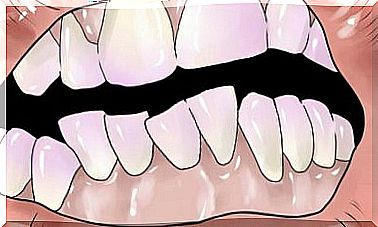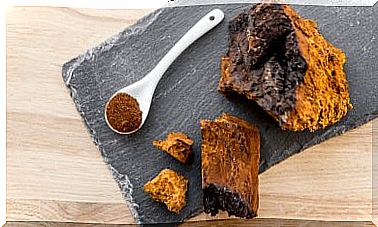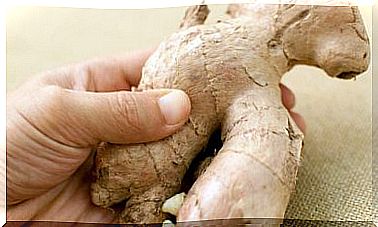Why Do People Get Fat Even Though They Eat Little?
We all know people who eat a lot and are thin, just as there are people who get fat even if they eat little. The latter often have difficulty losing weight and often experience feelings of failure and guilt for not losing weight.
The formula for weight loss is practically universal. It is based on the first law of thermodynamics and is quite simple. We lose weight if we spend more than we eat. It has a proven scientific basis and many people lose pounds because of it.
However, reducing everything to this mathematical equation has its problems, since body weight has many dimensions of genetic, environmental, food, psychological, etc. Therefore, when you want to lose weight, you have to take all these aspects into account.
Energy balance
The energy balance is based on two key concepts. The first are the calories that we ingest through food and that are our daily fuel; the second is the calories we expend or metabolic rate. In this case, more factors come into play:
- Basal metabolism. Minimum energy necessary for the body to perform its most basic functions. It is estimated that it represents between 70% and 80% of the total daily caloric expenditure.
- Exercise and physical activity. They are the calories we spend doing daily activities or more intense physical exercise.
- Thermal effect of food. It is the energy that we spend in the own intake and digestion of food.
If more calories come in than come out, we get fat. On the contrary, if more calories leave than enter, we lose weight. So, based on this statement, one of the most widespread ways to lose weight is to do a caloric restriction, or what is the same, eat less.
So where is the mistake of people who get fat even if they eat little? What could they be doing wrong? To solve these questions, read on.

Read more: 7 strategies to lose weight without restrictive diets
Why are there people who get fat even though they eat little?
There are many factors to take into account when it comes to understanding why a person gains weight even if they eat little. Let’s see a few below.
The role of metabolism
The organism is a lover of balance. In every sense. It has its mechanisms to balance body pH, temperature, blood pressure and, of course, body weight.
When you detect a significant calorie restriction and consequent weight loss, he puts himself on alert. The priority of the body is not to lose weight, although this is our will. Automatically, a series of hormonal reactions are activated aimed at saving energy.
One of the first things that happens is that it decreases your basal metabolism and the feeling of fullness, according to an article published in the journal Obesity. In turn, hormones associated with hunger increase. In any case, this effect can be reduced by establishing an intermittent fasting protocol that respects the circadian cycles of hormonal production.
As we have already seen, the basal metabolism has a great importance in the total calories we consume throughout the day. So, even if we eat less, we also spend less and the weight ends up stagnating. In some cases, it even increased.
Spend more to lose weight
Eating less is a way to lose weight because we put in fewer calories. But, as we have seen, if the metabolism slows down, we cannot uncontrollably decrease the calories ingested.
Apart from being negative at the metabolic level, very low diets lead to a lack of nutrients and a lack of energy. Then, they can lead us to a state of apathy, decay and even bad mood.
Therefore, it is important to spend more and not just reduce the calories ingested. Physical exercise and daily activity are essential to maintain a healthy metabolism, modulate hormone regulation in a positive way, increase muscle mass, and decrease fat mass.

The importance of muscle mass
Muscles are one of the body systems that consume the most energy, even when we are at rest. A person with a higher percentage of muscle mass will have a higher basal metabolism than a person with a lower muscle percentage, according to a study published in 2019.
Muscle mass is usually affected the moment we start dieting. When the body lacks the glucose provided by food, it looks for other sources to get it from.
Two of the main reserves we have are body fat and muscle tissue. The result is a loss of muscle mass that reduces energy expenditure even more.
At this point, the amount of food we eat would need to be decreased more and more, with the negative consequences that we have seen that this entails. Therefore, some people get fat even if they eat little, because their spending has become so low that it is difficult to eat below these amounts.
More physical activity to lose weight
Paradoxically, sometimes eating less or eating little is not synonymous with losing weight. So the best thing to do is to put ourselves in the hands of a professional and adopt healthy lifestyle habits that allow us to lose weight on a regular and lasting basis.
The best option is to combine a suitable diet plan with the practice of physical exercise on a regular basis. In this way we will increase muscle mass while reducing the damage that certain nutrients such as sugars cause to the metabolism.









